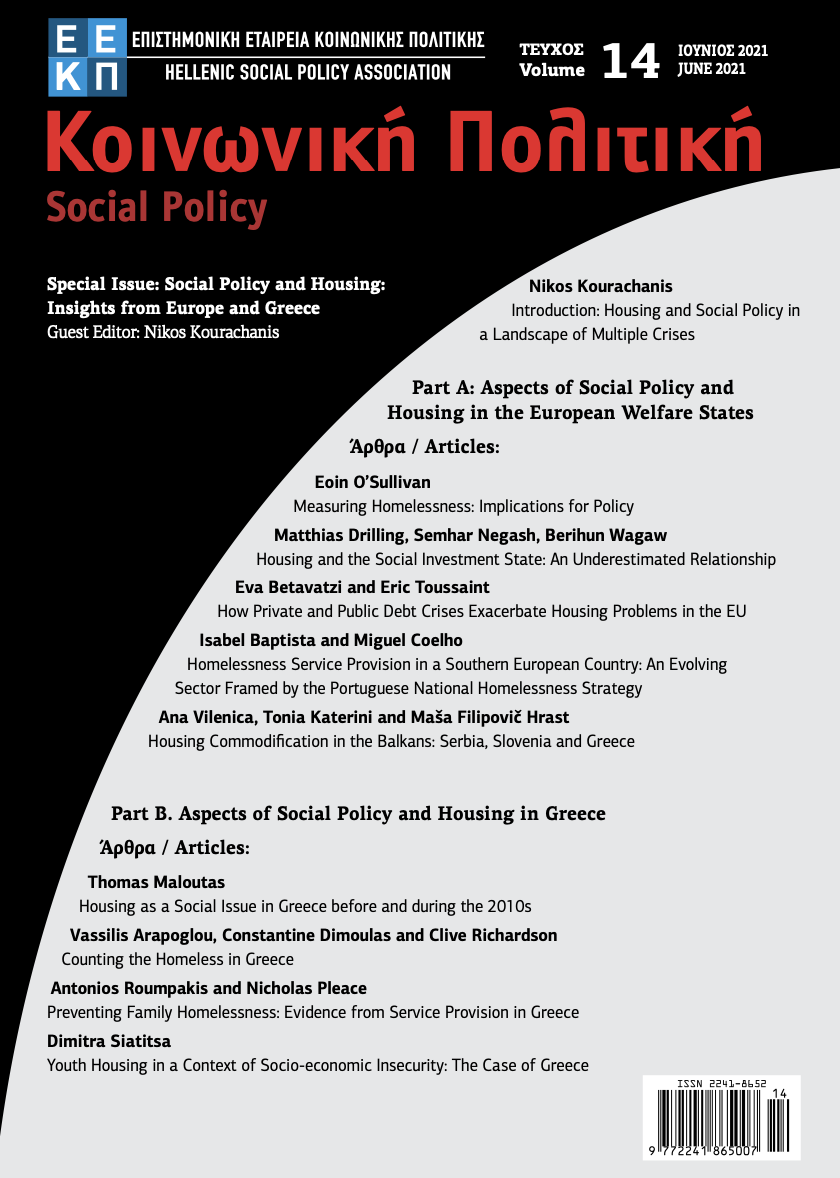How Private and Public Debt Crises Exacerbate Housing Problems in the EU

Abstract
The increase in mortgage lending in European countries since the 1990s’ is symptomatic of a political determination to push households into buying rather than renting on the housing market. Banks benefit from this as it allows them not only to increase their loan portfolios but also to use loans as securities and sell them on the secondary market. This results in credit bubbles which affect the global economy, as was the case in 2007-2008. Since then, in order to recapitalize their banks, many states have opted for public debt without imposing any substantial controls on the banking system and its ability to grant credit. Households have felt the effects of this in two ways: first, they have been confronted with a lack of affordable housing on the rental market, which has been left largely in the hands of the private sector and with little public investment or regulation; and second, austerity measures have caused their incomes to fall in order to pay off public debts. Thus, the increase in private and public debts, and the principle that they must be repaid whatever the cost, have an impact on the right to housing.
Article Details
- How to Cite
-
Betavatzi, E., & Toussaint, E. (2021). How Private and Public Debt Crises Exacerbate Housing Problems in the EU. Social Policy, 14, 51–61. https://doi.org/10.12681/sp.29077
- Issue
- Vol. 14 (2021)
- Section
- Articles

This work is licensed under a Creative Commons Attribution 4.0 International License.
Authors who publish with this journal agree to the following terms:
Authors retain copyright and grant the journal right of first publication with the work simultaneously licensed under a Creative Commons Attribution Non-Commercial License that allows others to share the work with an acknowledgement of the work's authorship and initial publication in this journal.
Authors are able to enter into separate, additional contractual arrangements for the non-exclusive distribution of the journal's published version of the work (e.g. post it to an institutional repository or publish it in a book), with an acknowledgement of its initial publication in this journal.
Authors are permitted and encouraged to post their work online (preferably in institutional repositories or on their website) prior to and during the submission process, as it can lead to productive exchanges, as well as earlier and greater citation of published work.


